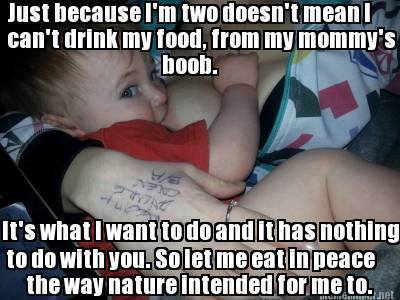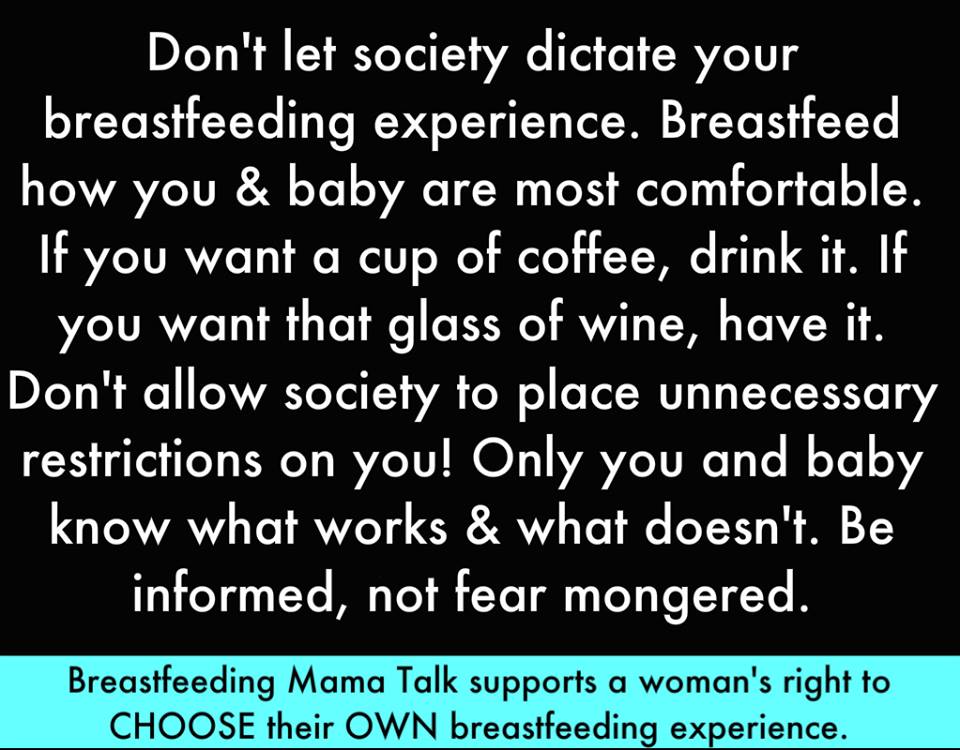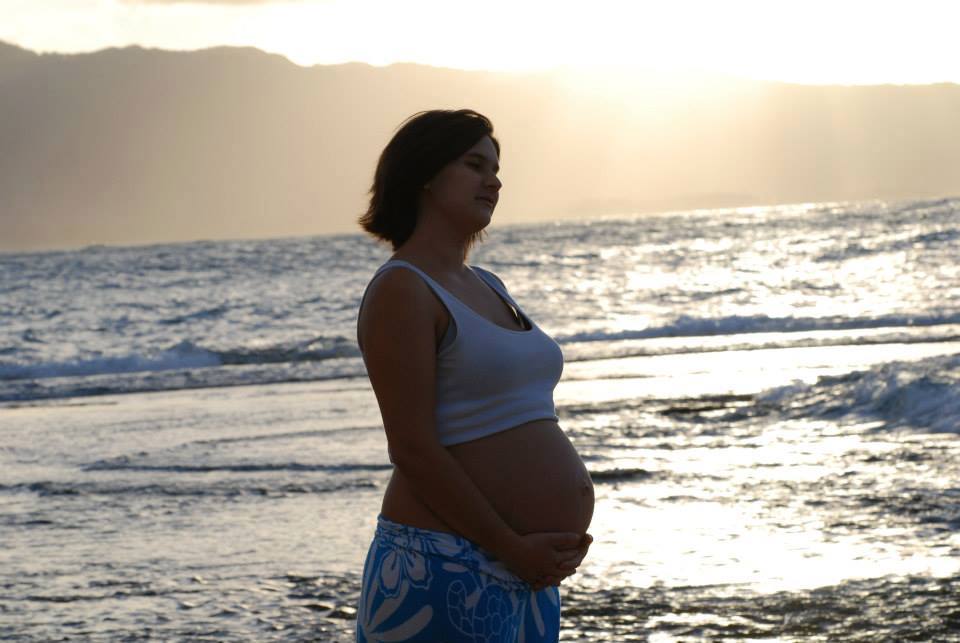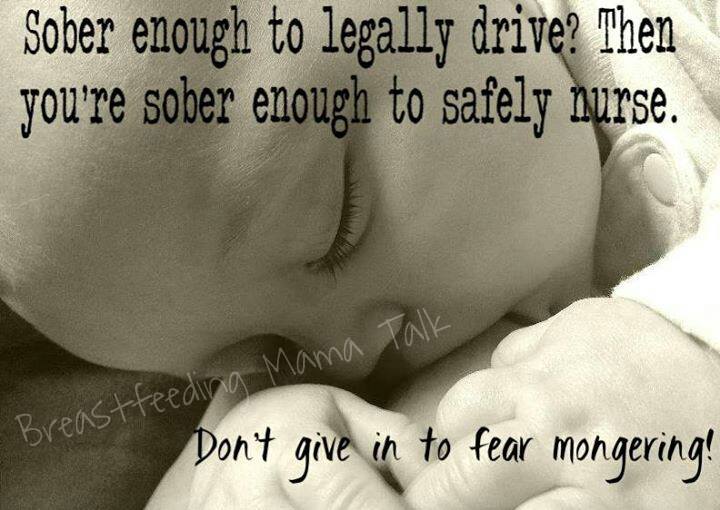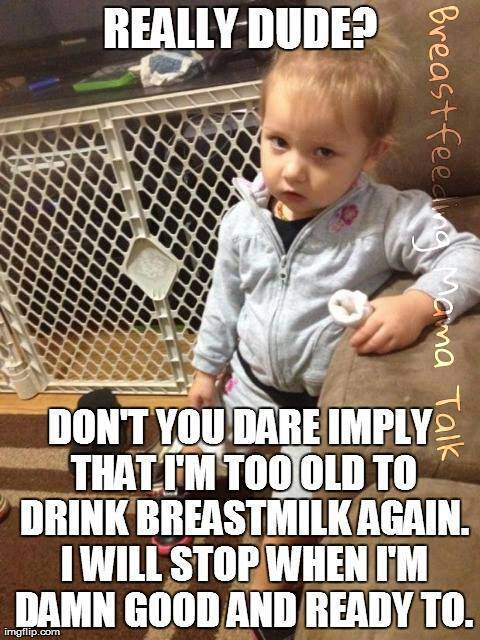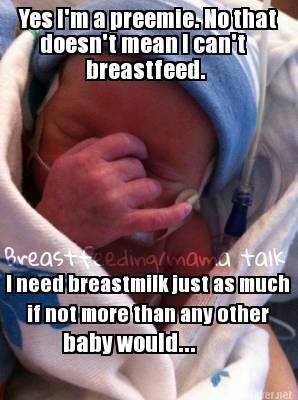Myths Of Breastfeeding
Published by- Kristy Kemp (owner of Breastfeeding Mama Talk)
We always get a lot of these common myths come to us at Breastfeeding Mama Talk in form of questions. We feel this will help a lot of women, especially the ones who run their breastfeeding experience believing those myths. It is important to us that women know the correct information going into their breastfeeding journey. We hope this article will be spread around to help women who currently believe these myths because we hate having women be fear mongered or coerced into believing false information.
Myth- 1.) You can't/shouldn't consume any alcohol during the whole duration of your breastfeeding experience.
Don't let society place unnecessary restrictions on you.
This is definitely on the top of the list for one of our most hated myths that women believe. The truth is there are safe ways to consume alcohol while breastfeeding. There are already so many restrictions people try to place on breastfeeding mothers or even restrictions mamas place upon themselves, but restricting alcohol out of your diet all together doesn't HAVE to be one of them. No we aren't saying to go get drunk every night of the week, we're also not saying to get drunk at all. Why must it be one extreme or the other on this issue? Either people say that women should cut the alcohol out all together or they assume that when people say it's okay to enjoy a beer or a glass of wine means we're condoning women to binge on alcohol. Moderation is key , and we have detailed article on that in our information section- "Breastfeeding and Alcohol."
Myth- 2.) You can't get pregnant when you are breastfeeding.
The woman in this picture is a prime example that this is a myth because she got pregnant while she was still exclusively breastfeeding her first daughter.
One of the biggest misconceptions when breastfeeding is that you can't get pregnant. Although it would be nice to be able to regulate your ability to conceive, it's just not the case. In fact, I'm pretty sure you know or know of someone who has children REALLY close in age. In our family we call these bundles of joy "surprises", as in, "SURPRISE! You're now pregnant and only 6 weeks pp because you were misinformed about your ability to get pregnant just because you are breastfeeding!
Myth-3.) You should avoid eating certain foods while breastfeeding and be restricted to a strict diet.
"What foods must I avoid while breastfeeding?
I get asked this question a lot. Generally, you can eat whatever you want when you are breastfeeding. There are very few limitations. Obviously, you will want to limit caffeine & alcohol consumption, but that doesn’t mean you can’t consume ANY. You do want to avoid certain fish & shellfish due to mercury & PCB levels, but you should probably avoid them anyway. Those would be shark, King Mackerel, Swordfish & Tilefish. Also, if you have any family history of food allergies, proceed with caution & watch the baby for adverse reactions. Other than that, eat a variety of foods! Your diet during lactation actually influences your toddler’s food preferences, so the more variety you consume, the better! There is no truth to the myth that beans, broccoli, cauliflower, onions, garlic, peppers, etc will upset your baby’s tummy. High acid foods will not change the pH of your milk either. Spices & strongly flavored foods will likely change the flavor, but most babies enjoy this! In short, do not feel that you have to deprive yourself of your favorite salsa while you’re breastfeeding. Enjoy!"
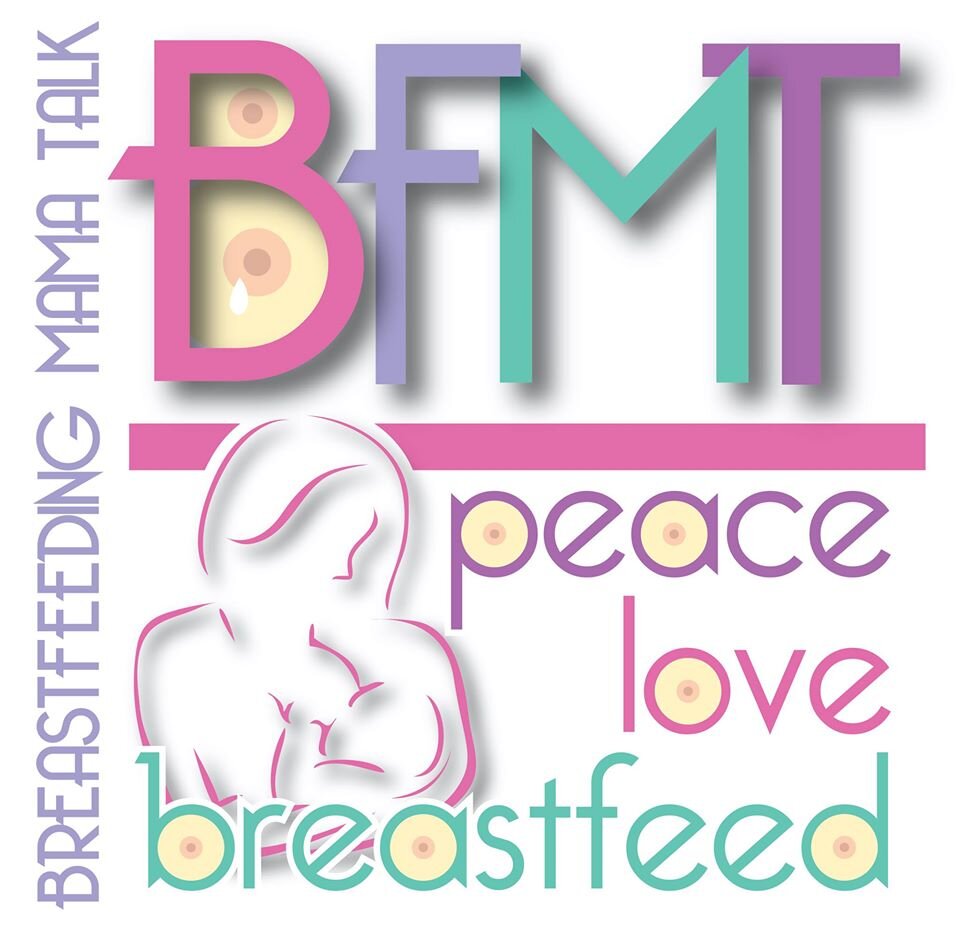






![sicky].jpg](https://images.squarespace-cdn.com/content/v1/527a753ee4b064db745b1205/1393984987195-F5T5WVWW3BHC8R24878G/sicky%5D.jpg)



